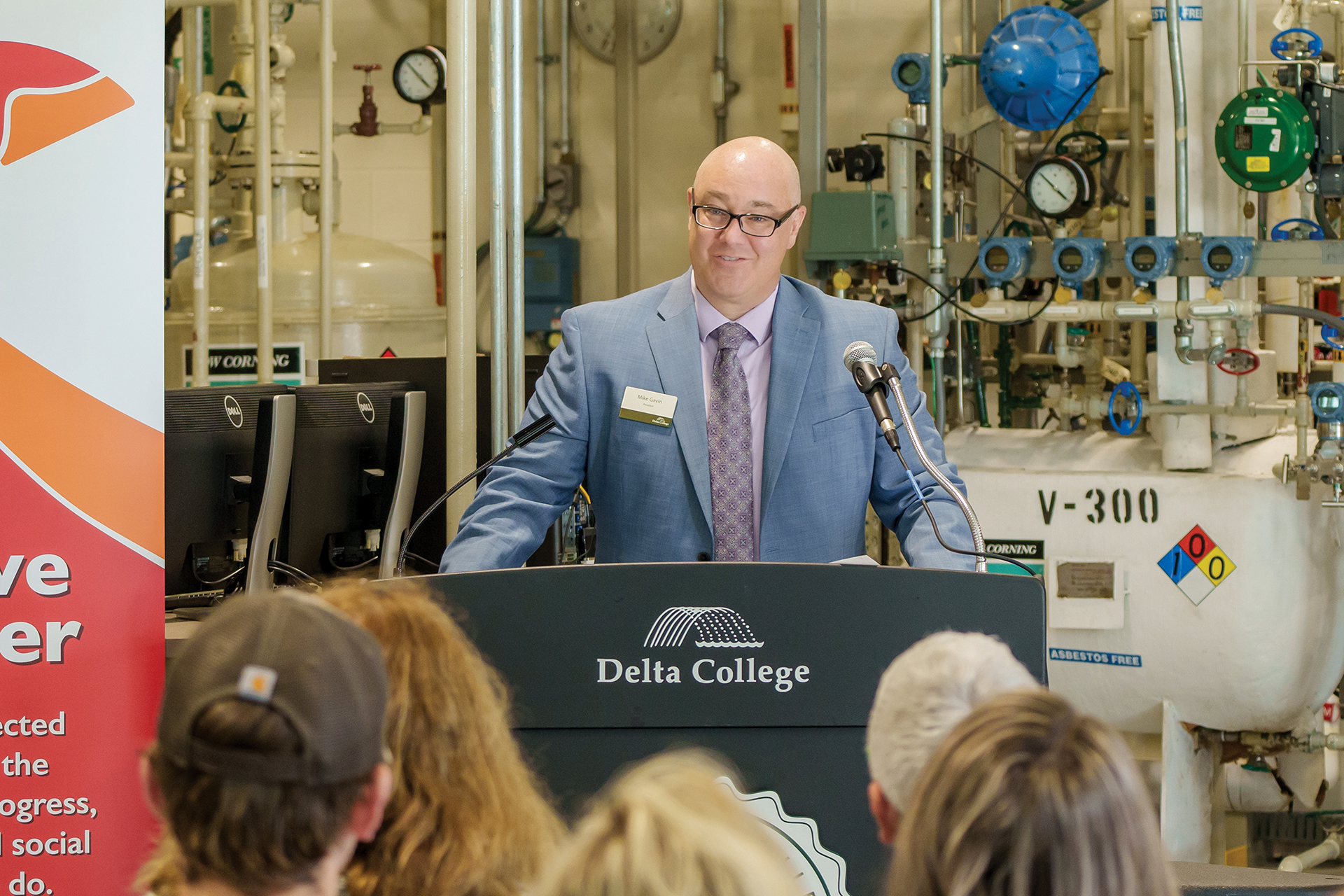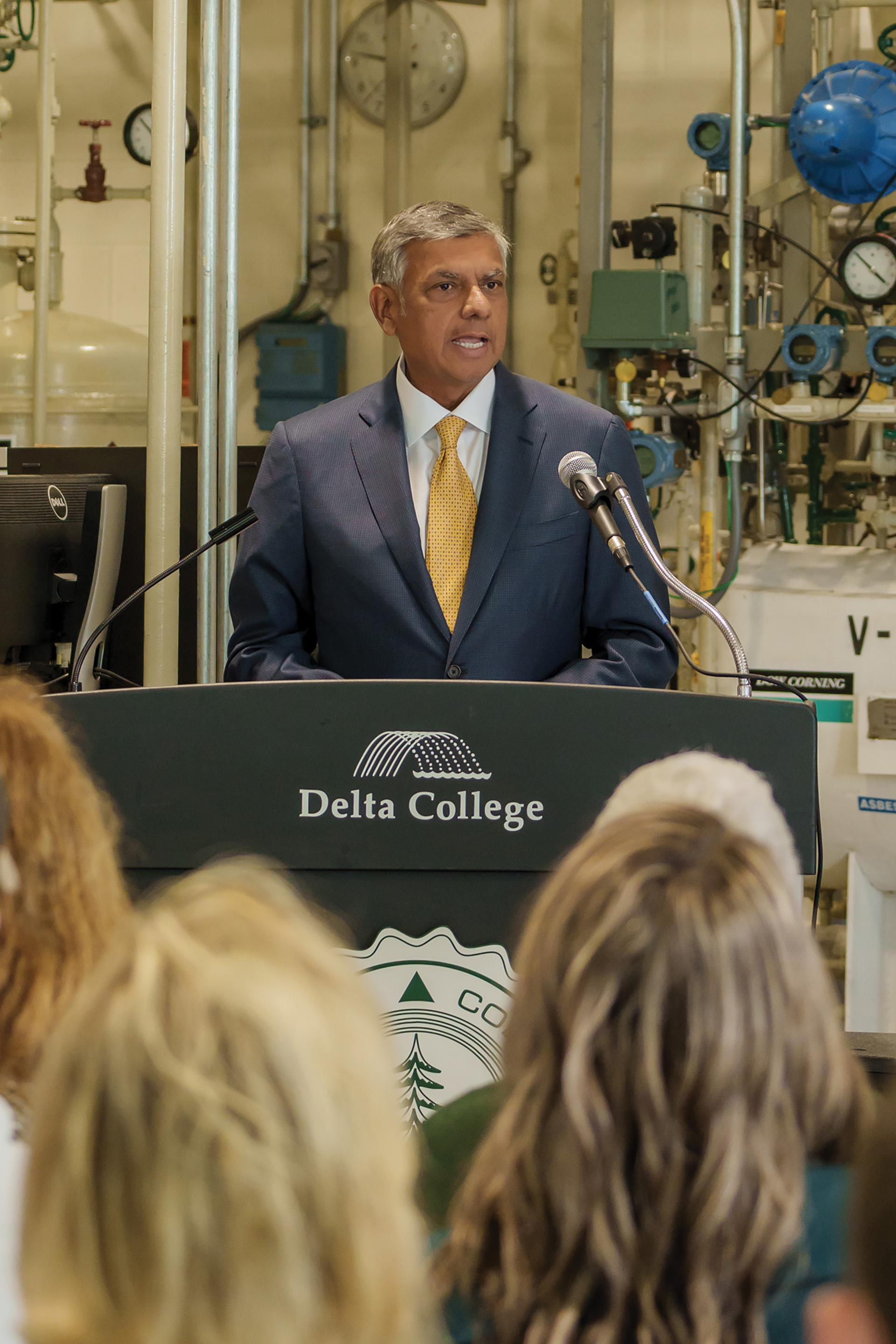Earlier this year, Delta College joined the Talent Action Team (TAT) for Semiconductors, organized by the Michigan Economic Development Corporation (MEDC). The TAT includes three community colleges, four universities and many industry partners focused on ensuring the state is a top choice for semiconductor companies to locate and expand.
Dr. Michael Gavin, Delta College’s president, was invited to join because the college
is well-networked with various Great Lakes Bay Region stakeholders, strengthening
its ability to build successful talent pipelines for Hemlock Semiconductor (HSC) in Saginaw County and SK Siltron near Bay City. Both companies are key players in securing a robust semiconductor
supply chain in Michigan and need a reliable workforce to continue expanding.
On Monday, September 18, officials from MEDC, as well as area employers HSC and SK
Siltron, were on Delta’s campus to announce $292,531 in grant funding given to the
college. The
dollars will be used for two objectives in the upcoming year.
First, Delta College will continue its work to develop a nationally recognized semiconductor technician and transfer curriculum. The college will also equip its semiconductor training lab space to include a portable, modular “clean room” for use by the students, giving a real-life simulation experience.
Second, Delta College’s STEM Explorer will develop new learning modules for the 38-foot vehicle, focused on semiconductor skills, to bring that knowledge into the schools. The efforts will highlight these jobs, in order to create middle and high school student excitement about the employment possibilities.
“This funding will allow Delta to continue its work in local middle and high schools fostering interest in STEM professions, and to develop a specialized curriculum to train graduates for these high-skill jobs,” said Dr. Gavin. “In a recent survey of students who interacted with the STEM Explorer, 81 percent said they might consider one of the professions they learned about for their future career. This enthusiasm is vital to ensuring our students and our communities can compete in a global marketplace.”
Semiconductor manufacturing is a high-demand job sector and the new curriculum will help gain access to regional jobs. The program is available to all students, including adult learners seeking to change careers, current workers needing semiconductor skills, and under-employed people seeking entry into the semiconductor industry.

“This enthusiasm is vital to ensuring our students and our communities can compete in a global marketplace.”
Delta College president


